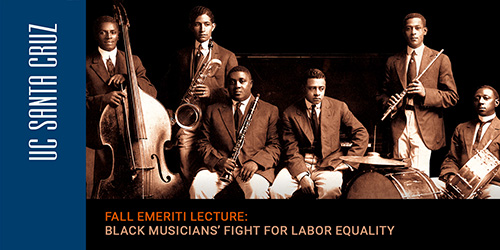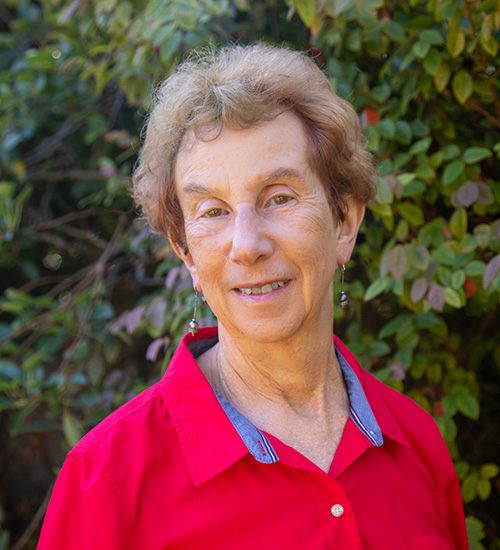Campus News
Fall 2024 Emeriti Lecture: Black Musicians’ Fight for Labor Equality
The UC Santa Cruz Emeriti Association proudly presents its Fall Emeriti Lecture on November 12, 2024. The annual event features UCSC Professor Emerita Leta Miller, who will discuss how the formation and dismantling of monoethnic union chapters illustrate the complexities of combating systemic racism.


The UC Santa Cruz Emeriti Association proudly presents its Fall Emeriti Lecture on November 12, 2024. The annual event features UCSC Professor Emerita Leta Miller, who will discuss how the formation and dismantling of monoethnic union chapters illustrate the complexities of combating systemic racism.
For most of the twentieth century, the American Federation of Musicians (AFM) maintained separate locals for Blacks and whites that operated in overlapping territories. Locals are individual union chapters representing workers within a specific geographic area, company, or industry branch. The Black AFM locals, which operated in more than 50 cities throughout the country, arose at the explicit request of Black musicians who felt that monoethnic unions offered the best opportunity for high wages and meaningful work. By creating these locals, Black musicians could control audition requirements, set pay scales, and gain representation at national conventions.
The AFM, which had no mandate for racial separation, permitted the establishment of these Black chapters, which had jurisdiction over the same territories as larger white locals. This dual local system led to bitter struggles over employment, particularly during the Great Depression, when white musicians began to impinge on territories previously dominated by Black bands.
In the 1950s, the AFM began eliminating segregated locals but was met with resistance. In some cases, white chapters resisted, but in numerous other instances, the Black locals opposed merging with the larger white chapters fearing that their members would be disadvantaged. Ultimately, all of the segregated dual locals merged, in part due to legal mandates such as state fair labor practice laws and the 1964 Civil Rights Act.
“Monoethnic aggregations don’t always result from overt prohibitions and they are not necessarily injurious,” said Miller. “There is an inherent tension between the ethical mandates of interracial amalgamation and some potential benefits that can arise from racially separated organizations. Indeed, monoethnic organizations, even when they result from deliberate rejection, can represent positive determination.”
Miller will explore this complex situation at the fall Emeriti Lecture, ”Black Musicians’ Fight for Labor Equality” on November 12 at 7 p.m.,
Miller has published widely on twentieth-century music, including her book Music and Politics in San Francisco, biographies of composers Aaron Jay Kernis, Chen Yi, and Lou Harrison, and more than twenty articles on Harrison, John Cage, Henry Cowell, Charles Ives; music in San Francisco; and the philanthropy of Phoebe Apperson Hearst. She was an active flutist for many years and previously published articles on Renaissance and Baroque music.
To register for the Fall 2024 Emeriti Lecture with Leta Miller or to join the live stream, click here.